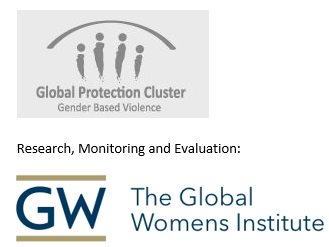- When implementing psychosocial programs for survivors of violence against women and girls in conflict and post-conflict settings it is imperative to include the following Core Principles which are outlined in the IASC Guidelines on Mental Health and Psychosocial Support in Emergency Settings (adapted from IASC, 2007, pgs. 9-13, unless otherwise indicated):
- Human Rights and Equality
- Promote and protect the human rights of all affected person, especially vulnerable groups such as women and girls.
- Promote equity and non-discrimination, ensuring that mental health and psychosocial support services are available to all affected people regardless of gender, age religion, ethnicity etc.
- Apply guiding principles using survivor-centred skills for caring for survivors. The respect and protection of the survivors’ interests and choices should be the priority and all services should ensure the principles of confidentiality, safety and security, respect and non-discrimination (WHO, 2012).
|
Principles |
Survivor-centred Skills |
|
Ensure the physical safety of the victim(s) / survivor(s).
|
Consider the safety of the survivor:
|
|
Guarantee confidentiality.
|
Ensure Confidentiality:
|
|
Respect the wishes, the rights, and the dignity of the victim(s)/ survivor(s) and consider the best interests of the child, when making any decision on the most appropriate course of action to prevent or respond to an incident of gender-based violence.
|
Respect the wishes, needs and capacities of the survivor:
For children, the best interests of the child should be a primary consideration and children should be able to participate in decisions relating to their lives. However, adults must take into account the child’s age and capacities when determining the weight that should be given to their wishes.
Treat the survivor with dignity:
Assure a supportive attitude:
Provide information and manage expectations
Ensure referral and accompaniment:
|
|
Ensure non-discrimination.
|
Treat every survivor in a dignified way, independent of her/his sex, background, race, ethnicity, sexual orientation, gender identity, ability status, religion, or the circumstances of the incident(s).
|
Source: UNICEF. 2010. Caring for Survivors Training Pack, pg. 53.
2. Participation
- From the on-set of an emergency involve local communities and local stakeholders (including vulnerable populations and NGOs representing the LGBTI community, women with disabilities, etc., as much as possible) in all steps of programming, including the assessment, design, implementation, and monitoring and evaluation stages.
3. Do no harm
- Mental health and psychosocial support programs have a high potential to cause harm because they deal with highly sensitive issues. As such, it is extremely important to ensure that such programs do no harm.
- Remain alert to possible adverse effects during programme planning. In addition, measure and record unintended negative consequences through programme monitoring and evaluation. Such unintended consequences might include: cultural, economic, political, psychological, security and social issues (adapted from WHO, 2012).
- Reduce the risk of harm in various ways, such as:
- Participate in coordination groups to learn from others and to minimize duplication and gaps in response;
- Design interventions on the basis of sufficient information;
- Commit to evaluation, openness to scrutiny and external review;
- Develop cultural sensitivity and competence in the areas in which you intervene/work;
- Remain updated on the evidence base regarding effective practices;
- Develop an understanding of, and consistently reflect on, universal human rights, power relations between outsiders and emergency-affected people, and the value of participatory approaches.
4. Build on available resources and capacities
- Build local capacities, supporting self-help and strengthening the resources already present. Externally driven and implemented programmes often lead to inappropriate mental health and psychosocial support and often the sustainability is limited.
5. Integrated support systems
- Focusing on stand-alone services, for example those dealing only with people with specific diagnoses, such as post-traumatic stress disorder, can create a highly fragmented care system. In order to avoid this, ensure that interventions and programming are as integrated as possible.
- Integrate psychosocial support programs and activities into wider systems such as: existing community support mechanisms, formal/non-formal school systems, general health services, general mental health services, social services, etc., as well as well as other services and community support which address violence against women and girls, such as: reproductive health, antenatal care, infant and young child nutrition, child protection, microfinance initiatives, and existing community-support mechanisms, such as women’s support groups (adapted from WHO, 2012). This will ensure that psychosocial support programs reach a wider population and carry less stigma. Experience has also shown that integration often increases programme sustainability.
6. Multi-layered supports
- In conflict and post-conflict humanitarian settings, people are often affected in different ways and as such require different kinds of support.
- Organize mental health and psychosocial support response programs by developing a layered system of complementary services (e.g. basic amenities for women and children, such as food) that meet the specific needs of different groups.
7. Non-stigmatizing services
- When implementing mental health and psychosocial support programs, include--but do not specifically target--survivors of violence against women and girls. Specifically targeting survivors can risk creating additional problems for these women and girls such as stigma, discrimination and violence (adapted from WHO, 2012).
